Day 2 Lunch Symposium
| Title | Evolutional and emerging issues for optimizing invasive mold infection management in Asia |
|||||||||||||||||||||
| Details | Date: November 12, 2021 Time: 13:15 – 14:15 pm (SGT) |
|||||||||||||||||||||
| Synopsis | Invasive mold infection (IMI) is an increasing cause of mortality and morbidity in immunocompromised patients owing to the rise in the number of patients who are undergoing transplantation and receiving immunosuppressants and chemotherapy. Early diagnosis and treatment can improve outcomes. In this talk, we will discuss the landscape of IMI in Asia, practical challenges in the clinic, and share new management strategies from diagnosis to treatment. | |||||||||||||||||||||
| Objectives | • To share updates on the current practice of managing IMI and the role of novel antifungal agents • To provide an interactive platform to discuss optimizing outcomes of patients with IMI, from diagnosis to treatment • To share experiences on the gaps and challenges in managing IMI in the clinic and practical ways to overcome them |
|||||||||||||||||||||
| Agenda |
|
|||||||||||||||||||||
| Faculty | 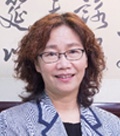
Professor Yee Chun Chen, Taiwan
Yee-Chun Chen is Professor of Medicine at National Taiwan University Hospital and College of Medicine, Taiwan. She is also an investigator at the National Institute of Infectious Diseases and Vaccinology, National Health Research Institutes of Taiwan. Professor Chen also serves as Vice President of the International Society for Human and Animal Mycology.
Her research is focused on the clinical and molecular epidemiology of invasive fungal diseases. She has received several achievement awards, and contributed to around 300 research papers.
|
|||||||||||||||||||||

Dr Samir Agrawal, UK
Samir G. Agrawal is Consultant Haemato-Oncologist at Queen Mary University of London and The Barts Health NHS Trust in the UK. He is a member of the Fungal Guideline Group of the European Conference on Infections in Leukaemia (ECIL) and author of the ECIL-6 update. He is also a member of the Fungal Subgroup of the NHS England Antimicrobial Resistance (AMS) Committee, UK.
Dr Agrawal’s research interests include improving the diagnosis of invasive fungal disease (IFD) in high-risk haematology patients, developing clinical guidelines and integrated care pathways for managing IFD, and audit tools to aid AMS.
|
||||||||||||||||||||||

Professor Arunaloke Chakrabarti, India
Arunaloke Chakrabarti is Professor and Head of the Department of Medical Microbiology of the Postgraduate Institute of Medical Education and Research, India. He oversees the Center of Advance Research in Medical Mycology, World Health Organization Collaborating Center for Reference and Research of Fungi of Medical Importance, and National Culture Collection of Pathogenic Fungi. He is also President of the International Society for Human and Animal Mycology and was recently awarded the Moselio Schaechter Award from American Society for Microbiology.
Professor Chakrabarti has published 427 papers in the field of fungal diseases and serves as a section editor/editor/associate editor/deputy editor for Mycoses, Medical Mycology Case Reports, Current Fungal Infections Report, and Journal of Medical Microbiology.
|
| Title | From patients to lab, back to patients: The Ronapreve story |
| Details | Date: 12 November 2021 Time: 13:15–14:15 SGT |
| Synopsis | RONAPREVE is a highly potent cocktail of 2 targeted neutralising antibodies that can be administered directly into the bloodstream and increase the amount of highly specific antibodies in the system to neutralize virus more efficaciously. They bind to the surface of SARS-CoV-2 virus triggering its destruction by the immune system. The cocktail gives a boost to those who have not mounted a response on their own and hope to those who cannot protect themselves. This symposium tells the Singapore journey starting with the early experience with the molecule and extends to the use of the cocktail on patients in Singapore in the current pandemic. The symposium is meant to share the available data across different patient populations, the learnings so far and also, to encourage exchanges among countries as we continue to see the role of antivirals in Covid-19. |
| Faculty |  Dr. Helen Oh May Lin Dr. Helen Oh May LinSenior Consultant with the Department of Infectious Diseases at Changi General Hospital |
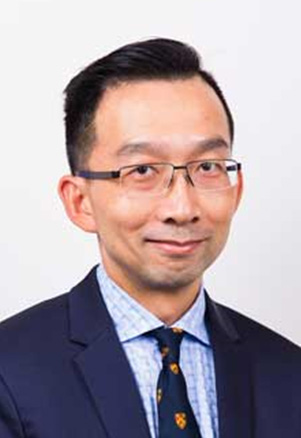 Dr. David Lye Chien Boon Dr. David Lye Chien BoonDirector, Infectious Disease Research and Training Office in National Centre for Infectious Disease |
| Title | Thinking Dengue Again – Chronicity, Antibiotics and Vaccination |
|||||||||||||||||||||
| Details | Date: 12 November 2021 Time: 13:15–14:15 SGT |
|||||||||||||||||||||
| Agenda |
|
|||||||||||||||||||||
| Abstract |
Healthy longevity that has led to the increase in prevalence of chronic noncommunicable diseases in Asia is expected to increase the disease burden of many acute infections, including dengue. In this symposium, we will first explore how dengue disease management and clinical outcome is modified by noncommunicable diseases. Second, we will then examine antimicrobial resistance and its association with dengue management. The third part of the symposium aims to elucidate the importance of a dengue vaccine for reducing dengue disease burden against the two aforementioned scenarios. Here, we will discuss the efficacy and safety profile of TAK-003*, Takeda’s candidate tetravalent dengue vaccine.
*At the time of the congress, TAK-003 is yet to receive market authorization approval in Singapore or in other countries.
|
|||||||||||||||||||||
| Faculty |  Dr. Asok Kurup – Chairperson Dr. Asok Kurup – ChairpersonConsultant, Infectious Disease Care Clinic, Mount Elizabeth Hospital Singapore Dr. Asok Kurup is an adult infectious diseases consultant at infectious Diseases Care Pte Ltd, Mount Elizabeth Medical Centre and visiting consultant to the Department of Infectious Diseases, Singapore General Hospital He was a former visiting consultant at the Communicable Disease Centre, Tan Tock Seng Hospital where he ran outpatient HIV clinics. He was also a former teaching faculty at the Yong Loo Lin School of Medicine and Duke’s Graduate Medical School. He is the current chair of the Antibiotic Stewardship Committee of Parkway Hospitals and the Chapter of Infectious Diseases Physicians of the Academy of Medicine, Singapore. He has over 40 publications and 80 abstracts. Research Interests: Primary HIV infection, Community-acquired bacterial infections, particularly melioidosis and klebsiella septicemia, invasive fungal infections, control of nosocomial Infections including novel strategies to control MRSA infections. |
|||||||||||||||||||||
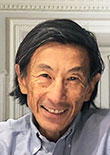 Dr. Theodore Tsai – Speaker Dr. Theodore Tsai – SpeakerVice President and Head of Immunization Science and Policy, Vaccines, Takeda Dr. Theodore Tsai is Vice President and Head of Immunization Science and Policy within the Global Medical Office of Takeda Vaccines. Dr. Tsai received an MD from the University of Pennsylvania, an MPH degree from Johns Hopkins University School of Hygiene and Public Health and trained in Paediatrics at the Johns Hopkins Hospital. He served in the Epidemic Intelligence Service officer at the US Centers for Disease Control and, as a Commissioned US Public Health Service Officer, was assigned to the Viral Special Pathogens Branch in Atlanta, Georgia and to the Division of Vectorborne Viral Diseases, Ft Collins, Colorado, where he was responsible for surveillance, laboratory diagnosis and field and laboratory studies of viral hemorrhagic fevers and arboviruses. After retiring from the USPHS, he joined industry where he has worked on the development and implementation of vaccines for influenza and other respiratory viruses, Japanese encephalitis and dengue viruses, pneumococcal and meningococcal diseases and other pathogens. Dr. Tsai was elected to the Alpha Omega Alpha honor medical society and as a fellow to the Infectious Diseases Society of America and to the American Academy of Microbiology. |
||||||||||||||||||||||
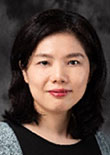 Professor Nicole Huang – Speaker Professor Nicole Huang – SpeakerDirector International Health Program, National Yang Ming Chiao Tung University, Taiwan Prof. Nicole Huang is currently holding several important positions in National Yang Ming Chiao Tung University including the Vice Dean of College of Medicine, Director of International Health Program, Professor at Institute of Hospital and Health Care Administration and Adjunct Professor at Institute of Public Health. Dr Huang completed her M.P.H. in Health Services Administration from Boston University, School of Public Health in 1997. She then went on to receive her Ph.D. in Health Policy & Management from Johns Hopkins Bloomberg School of Public Health in 2004. Her main research interests are Health System Research, Integration of Care, and Organization of Hospitals and Health Care Delivery System. |
||||||||||||||||||||||
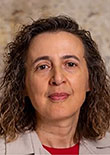 Dr. Alberta Di Pasquale – Speaker Dr. Alberta Di Pasquale – SpeakerGEM Medical Lead, Vaccines, Takeda Dr. Alberta Di Pasquale, is an MD with a post-doctoral degree in Internal Medicine from the University of Chieti (Italy), and a PhD in Vaccinology from the University of Genoa (Italy), she is visiting professor of Vaccinology at the University of Antwerp, Belgium, since 2019. Alberta has over 20 years of experience in vaccines, she has supported new vaccine introductions with scientific and educational activities across many infectious disease and target age groups. She has contributed to awareness and action efforts on modern vaccines, new technologies, vaccine confidence and the life-course immunization. She joined Takeda in June 2021 to support the introduction of the dengue candidate vaccine TAK-003 with the aim to contribute to address dengue burden of disease and improving public health in the GEM region. |

